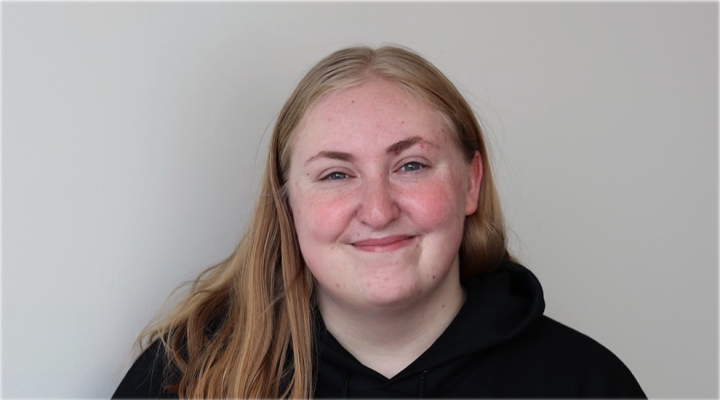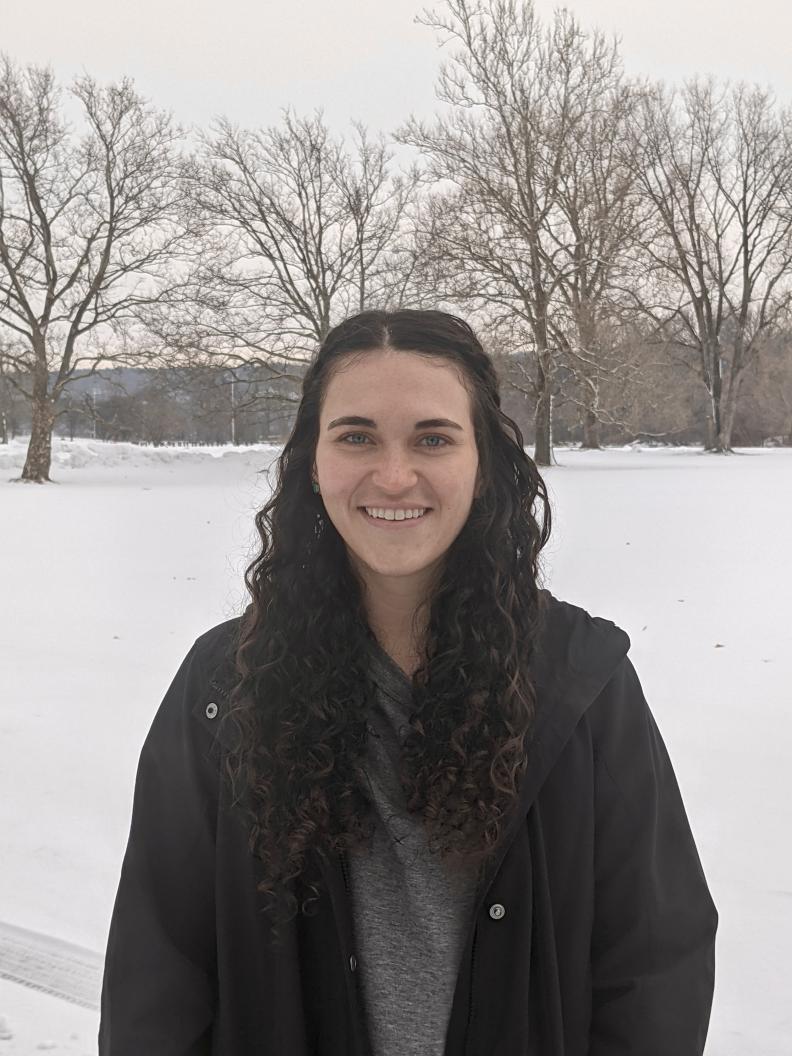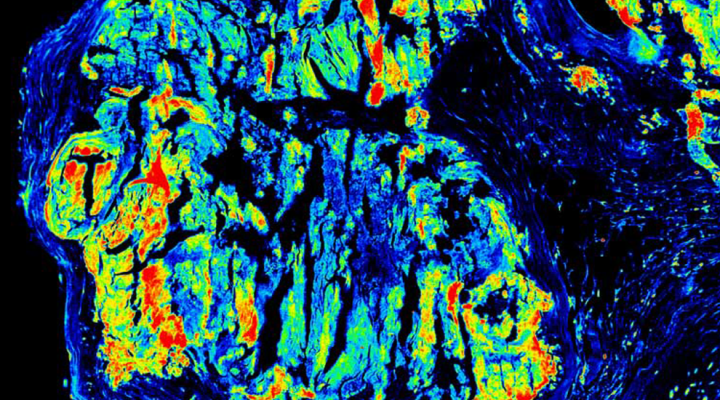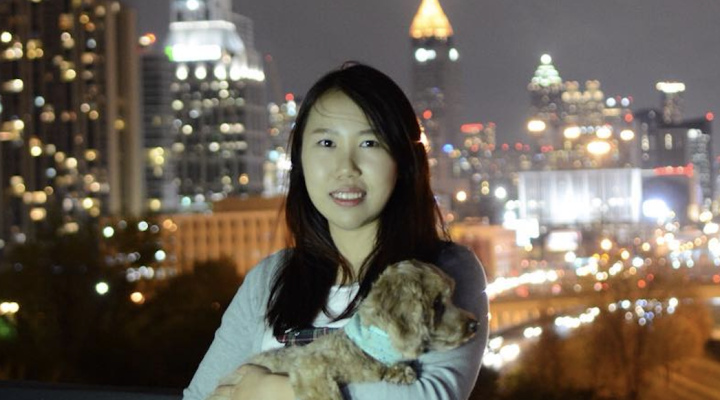Growing up in Aurora, Colorado, Rileigh Casebolt always knew she liked science and math. Over time, the broad term “science” sharpened a bit to the more focused term “chemistry.” Casebolt’s parents were both in finance, but her aunt and uncle had earned degrees in mathematics and mechanical engineering, (respectively), and were able to advise her on a life in STEM.
They had gone to Bucknell University in Lewisburg, PA and when it came time to choose a college, Casebolt made that same decision. She was awarded a Presidential Fellowship from Bucknell and majored in chemical engineering, with a minor in mathematics. “I never knew any chemical engineers growing up, and in high school I wasn’t really ever exposed to all the different engineering fields available,” says Casebolt, “but I just somehow knew from ninth grade on that I wanted to study chemical engineering.”
As a Presidential Fellow at Bucknell Casebolt was paired right away with a faculty mentor and had the chance to do some research. “I have always been interested in sustainability,” says Casebolt, “so I joined the joint lab of Professors Timothy Raymond and Dabrina Dutcher. Their work focused on atmospheric aerosols.” This decision to work with Dr. Dutcher, (also known as “Dabs”), had a profound influence on Casebolt.
“I don’t know that I would have gone on to grad school without Dabs’s guidance,” says Casebolt. “She was amazing as a mentor---she just wanted me to learn and chart my own course and at the same time she never let me get lost in the struggle.” In addition to providing Casebolt with several years of research experience, Dutcher was also instrumental in helping her think about what she wanted to focus on in grad school and where she might apply.
Casebolt’s degree in chemical engineering and strong interest in sustainability led her to seek out a graduate program where she could learn more about electrochemistry, especially as it can be applied to questions of sustainability. Because the field is so interdisciplinary, Casebolt found herself applying to a mechanical engineering department at one university, a materials science department at another, and the Robert Frederick Smith School of Chemical and Biomolecular Engineering at Cornell. She was drawn especially to the work being done by Smith School faculty members Lynden Archer and Tobias Hanrath and Department of Materials Science faculty member Jin Suntivich.
Casebolt says now that her decision became much easier after her visiting weekend. “People in the department at Cornell—students and faculty—were all very nice and seemed super energetic. Some of the people in some other places seemed worn down and tired, but here they really seemed to like what they were doing. And so many people were collaborating with people from all over campus. It felt like a place I could learn a lot and do good work.”
Hanrath, the Marjorie L. Hart ’50 Professor in Engineering, is now Casebolt’s advisor. “When I applied I was drawn to Tobias’s work on photovoltaics and electrocatalysis for CO2 reduction,” says Casebolt. “And once I started here the thing that really convinced me that his lab was the place for me was the fact that he had so many collaborations going all over campus. Working with Tobias has opened up a wide network of resources to me and that is so valuable in research.”
Now in her third year at Cornell, Casebolt is exploring questions raised by the research findings of a previous Hanrath doctoral student, Kevin Kimura. Dr. Kimura found that in the process of electrochemical CO2 reduction, if you pulse the energy input instead of simply applying a continuous energy input, you can vary the products produced from the initial CO2. The fact that this happens is known; exactly how and why is happens is not known. And this is where Casebolt is focusing her attention.
These questions are important and, when the answers are understood more fully it will be possible to collect waste CO2 before it enters the atmosphere, pump it into a reactor housing electrodes and catalysts, pulse electricity (derived from renewable sources such as wind and solar) through the electrodes at a known rate, and selectively produce value-added products such as ethylene and methane.
Exactly what is going on will be the focus of Casebolt’s work the next couple of years. “Nobody understands why this works,” she says. “Are we changing the surface of the electrode when we pulse? Are we oxidizing the copper? Is restructuring happening?; Are we roughening it? Are we changing the adsorbed species at the interface?” The science Casebolt is doing is fundamental and, as part of the Hanrath Energy Lab’s larger program of research, has the potential to cut CO2 emissions significantly.
Casebolt is not certain exactly what she will do when she finishes her Ph.D. program, but at this point she is leaning toward a job in industry or a position where she can have an impact on public policy. As an undergraduate she spent one summer interning at New York State’s Attorney General’s Office as a science advisor to a legal team. She found the work rewarding and can see wanting to be in a position where she can translate science into policy.
To further explore what a job in industry might be like, Casebolt applied for and received the inaugural Corning Fellowship. The fellowship pairs her with a mentor from Corning, Inc. and gives her a chance to work on a project at the Corning facilities. Casebolt has had regular meetings with her mentor but, due to COVID-19 restrictions, has not yet had the chance to get into the lab in Corning. “Corning has a large portion of their company dedicated to environmental technologies and they have done a lot of work addressing emissions and air quality,” says Casebolt. “I am very excited about this and hope to be able to actually get into a lab there by the fall.”
When Casebolt is not thinking about pulsed electrochemical CO2 reduction, she can often be found running the many trails around Ithaca, training for a 40-mile race that is scheduled for June 2021.





